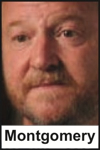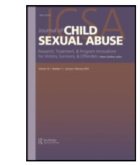Rascals case in brief
In the beginning, in 1989, more than 90 children at the Little Rascals Day Care Center in Edenton, North Carolina, accused a total of 20 adults with 429 instances of sexual abuse over a three-year period. It may have all begun with one parent’s complaint about punishment given her child.
Among the alleged perpetrators: the sheriff and mayor. But prosecutors would charge only Robin Byrum, Darlene Harris, Elizabeth “Betsy” Kelly, Robert “Bob” Kelly, Willard Scott Privott, Shelley Stone and Dawn Wilson – the Edenton 7.
Along with sodomy and beatings, allegations included a baby killed with a handgun, a child being hung upside down from a tree and being set on fire and countless other fantastic incidents involving spaceships, hot air balloons, pirate ships and trained sharks.
By the time prosecutors dropped the last charges in 1997, Little Rascals had become North Carolina’s longest and most costly criminal trial. Prosecutors kept defendants jailed in hopes at least one would turn against their supposed co-conspirators. Remarkably, none did. Another shameful record: Five defendants had to wait longer to face their accusers in court than anyone else in North Carolina history.
Between 1991 and 1997, Ofra Bikel produced three extraordinary episodes on the Little Rascals case for the PBS series “Frontline.” Although “Innocence Lost” did not deter prosecutors, it exposed their tactics and fostered nationwide skepticism and dismay.
With each passing year, the absurdity of the Little Rascals charges has become more obvious. But no admission of error has ever come from prosecutors, police, interviewers or parents. This site is devoted to the issues raised by this case.
On Facebook
Click for earlier Facebook posts archived on this site
Click to go to
Today’s random selection from the Little Rascals Day Care archives….
Click for earlier Facebook posts archived on this site
Click to go to
Today’s random selection from the Little Rascals Day Care archives….
N.C. law stacked deck against defendants
Oct. 17, 2011
The two largest ritual-abuse day-care cases – Little Rascals in Edenton and McMartin in California – bore many similarities but McMartin resulted in not a single conviction.
 I asked Mark Montgomery, who in 1995 successfully argued Bob Kelly’s case before the North Carolina Court of Appeals, why that might have been:
I asked Mark Montgomery, who in 1995 successfully argued Bob Kelly’s case before the North Carolina Court of Appeals, why that might have been:
“Each state has its own criminal laws, rules of procedure and evidence, etc. … Several features of the law in North Carolina gave prosecutors an advantage.
“First, the prosecution interviewed all the children attending Little Rascals Day Care. Most said they had seen no abuse. The law allowed the prosecution to withhold those interviews from the defense. And the defense was not allowed to interview the children. So all the jury heard were the stories of the 12 children who were the subject of indictments.
“Second, the law allowed the state’s expert witnesses to testify that they believed the children’s claims.
“Third, the defense was not allowed to conduct its own physical or psychological examinations of the children.
“Fourth, North Carolina had (and has) very liberal rules for the admission of hearsay by children in these cases. Almost anything a child says out of court can be used by the jury as substantive evidence of guilt. An effective prosecution strategy was to enlist the parents to elicit allegations of abuse. For months, parents, who were told their children had been abused, pleaded with their children to ‘disclose.’ Some eventually did. The prosecution then called the parents as witnesses to testify to what their children said, even if the children themselves did not testify.”
Honk if you believe that….
 July 20, 2012
July 20, 2012
… Little Rascals parents were caught up in a frenzy of panic and misinformation.
… Ill-prepared therapists served prosecutors, not their patients.
… In their zeal for convictions, prosecutors behaved cruelly and unethically.
… 20th century North Carolina never saw a more sweeping injustice.
… Bob and Betsy Kelly, Dawn Wilson, Shelley Stone, Robin Byrum, Darlene Harris and Scott Privott deserve full and unequivocal exoneration.
Faller, Everson resist trend toward skepticism
 Sept. 24, 2012
Sept. 24, 2012
The February 2012 special issue of the Journal of Child Sexual Abuse is devoted entirely to “Contested Issues in the Evaluation of Child Sexual Abuse Allegations.”
Ritual-abuse holdouts Kathleen Coulborn Faller and Mark D. Everson use the issue to vigorously push back against calls for greater diagnostic skepticism.
The object of their displeasure is “The Evaluation of Child Sexual Abuse Allegations: A Comprehensive Guide to Assessment and Testimony” (2009), edited by the late Kathryn Kuehnle and Mary Connell. Contributors to the Kuehnle-Connell volume advocate more reliance on forensic science and less on “unverified methods or conjecture” of the kind that enabled prosecution of the Edenton Seven. By contrast, Everson and Faller can be counted on to stretch the bounds of prosecution-worthy evidence, from finding “clinical usefulness” in anatomical dolls to granting universal credibility to child-witnesses.
From Everson’s response in the journal:
“Many critics of current forensic practice (emphasize) specificity over sensitivity…. Specificity (minimizing inclusion of false cases) and sensitivity (maximizing inclusion of true cases) are counterbalancing indices of decision accuracy. Favoring specificity over sensitivity means that overdiagnosing (child sexual abuse) is considered a more serious concern than failing to substantiate true cases of abuse….”
Yes, I’ll admit it: I consider the perils of overdiagnosis – putting innocent people in prison – much worse than those of underdiagnosis – letting a possible abuser go free, at least temporarily. However much Everson and Faller might wish otherwise, our system of justice does stipulate “reasonable doubt.”
Chapel Hill therapist was nothing if not certain
Nov. 2, 2011
Post on hidden mysteries.org (1995):
“Aside from the children and their parents, others are deeply disappointed by the N.C. Supreme Court’s decision not to (overturn) the reversals by the Court of Appeals.
“Superior Court Judge Marsh McLelland, who heard the Little Rascals case the first time, wrote in a letter to the Chief Justice of the Supreme Court: ‘Your refusal to review the Kelly and Wilson reversals by the Court of Appeals is legally and morally reprehensible.’
“Once more, the Edenton children find themselves as much on trial as their alleged perpetrators, if not more so.”
ANN EARLE
Letter to the editor of the News & Observer of Raleigh (May 16, 1996):
“As a psychotherapist who treats many child victims and adult survivors of sexual and ritual abuse… I am incredulous that so many people support Robert F. Kelly….
“There is ample historical and anthropological evidence that ritual abuse has existed for centuries…. Unfortunately, day care centers are optimal settings for such perpetrators.
“If there is indeed a ‘witch hunt’ going on, it’s actually aimed at abused children and those who advocate for them.”
ANN EARLE, C.C.S.W., B.C.D.
Chapel Hill
Letter to the editor of the News & Observer of Raleigh (June 4, 1997):
“Investigators should not ask leading questions, of course, but even if they did it is difficult to imagine how a young child could come up with graphic details of sexual activity if nothing happened. Child sexual abusers and pornographers routinely incorporate fantasy to entice children to cooperate and render them less believable if the child ever tells.
“Why are journalists so quick to believe alleged abusers and discount sexual abuse allegations by children?”
ANN S. EARLE
Chapel Hill
Letter to the editor of the News & Observer of Raleigh (January 15, 1999):
“In reality, false allegations of sexual abuse by preschool children are rare.
“I have spent three years researching and editing a book on ritual abuse allegations. Ample evidence supports the existence of such abuse in day care centers, in spite of how bizarre it may sound.
“Robert Kelly was found guilty by a jury of his peers in a lengthy trial. This verdict was overturned only on a technicality.
“Finally, there is obviously significant evidence to charge Kelly in a case unrelated to Little Rascals (charges dropped eight months later). We should consider these facts before concluding that the alleged abuses at Little Rascals were due to a ‘hysteria’ fueled by a ‘rumor mill.’ ”
ANN EARLE, C.C.S.W., B.C.D.
Chapel Hill
As these comments suggest, certainty in the pervasiveness of ritual abuse extended well beyond those therapists directly involved in the Little Rascals case.
Did Ann Earle, a board member of the International Council on Cultism and Ritual Trauma, ever change her mind? If so, she seems not to have shared the news.








0 CommentsComment on Facebook